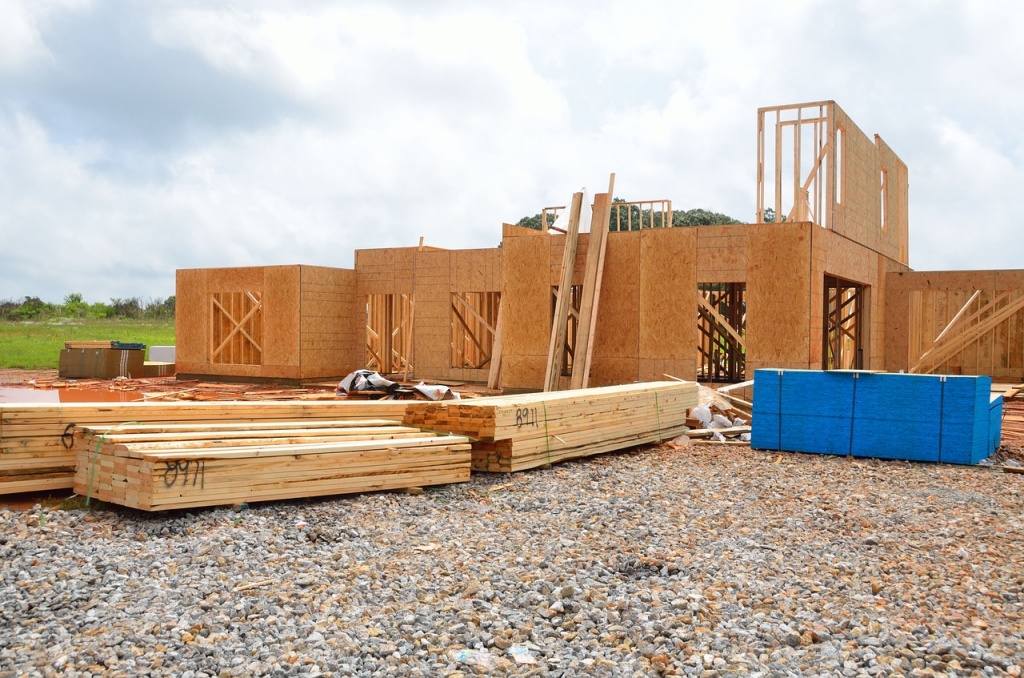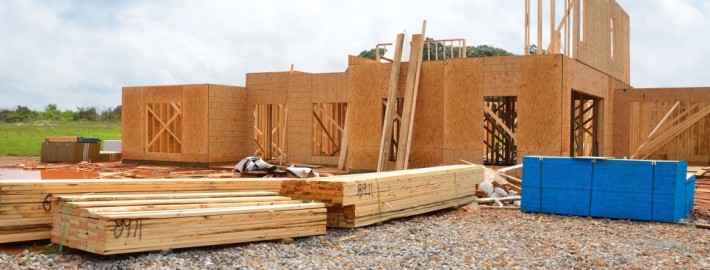WHY IS NEW CONSTRUCTION THE HOT STRATEGY FOR INVESTORS RIGHT NOW?
By Michael Poggi
Author, Public Speaker, Professional Investor and President of THE MILLIONAIRES INVESTMENT GROUP LLC.
WHY IS NEW CONSTRUCTION THE HOT STRATEGY FOR INVESTORS RIGHT NOW?
 COULD IT EVEN BE SAFER AND MORE LUCRATIVE THAN FLIPPING? And how about 20 percent returns from passive investing from new construction using your IRA OR 401 K PLAN !!
COULD IT EVEN BE SAFER AND MORE LUCRATIVE THAN FLIPPING? And how about 20 percent returns from passive investing from new construction using your IRA OR 401 K PLAN !!
We have all seen the TV shows that make Fix and Flipping appear so simple that anyone can do it and make a huge profit overnight right?
Unfortunately that does not always happen in real life, Sometimes, people purchase a property make a small mistake when estimating the repairs and there go the profits out the door. It comes with lots of aggravation and uncertainties.
Fix and flips are the preferred strategy for most beginners because they have not learned how to build houses from scratch. The problem is, if the fix and flip goes wrong or gets delayed, it can cause big losses or losing the property to a lender. Fix and flips that have good margin are harder and harder to find and take time. The amount of time that it takes to find great deals cost you money. Bidding on houses that gets bought by higher bidders who sometimes even pay retain is also a problem.
Other Times, an Investor will hire a contractor in good faith and the contractor takes much longer than expected, changes their bid in the middle of a job, leaves the job site and goes to work on another job, or even doesn’t show up at all. Hiring different contractors for each flip also causes problems when you don’t know the contractor well or his prices are too high.

Enough is Enough. Time is money. Michael Poggi, President of The Millionaires Investment Group has been using his very profitable way to make a great return utilizing our New Construction Strategy. This Strategy is Turn-Key and very Profitable. Investors that are tired of the high risk and low return of the stock market love new construction for passive, more predictable returns. We have seen around 20 percent returns per year for passive investors who like no hassle turn key strategies. Investors partner with us on new houses but do not need to do any work. It’s all turnkey done for you.
The Millionaires Group is building New Construction Homes in Beautiful well established Residential Neighborhoods in Florida. Our company is making a profit on these homes about every 6 months from the day we start the new houses. We prefer this strategy instead of just fixing up an old property which always seems to come with hidden problems. Instead the group is creating high quality new homes with a 10 year warranty in fabulous neighborhoods. Which Property Would you Choose? New houses on the market with a ten year warranty sell faster and more profit than a typical fix and flip.
Since the homes we are building are located in different established residential neighborhoods in Florida, the risk is mitigated vs building only in a new subdivision where there are no or very few houses. The neighborhoods have had new homes built years ago all around our lots so that we are seen by hundreds of people driving by from day one. This gives us a chance to sell the house faster and without a realtor and make us more profit.

The permitting process is faster due to building the same 5 floor plans over and over. The planning and zoning department sees that it is the same houses being submitted again and again and now they approve it much faster and easier than if we submitted a new fix and flip which is different every time and could have code violations which slows down the process.
The homes are built by our trustworthy contractor builder teams who are building the same set of 5 Quality floor plans over and over which makes less room for mistakes and surprises. They are modern eco friendly and energy efficient. We build safe 3 bedroom 3 bathroom 3 car garage to sell fast compared to other size and other harder strategies. Picking the right floor plans that are the proven fastest selling houses took lots of practice and experience. The typical square footage is around 2200 square feet. Out cost including the land, the permits, environmental and construction is around $ 180,000 or more. This is the perfect size home to sell fast. We have perfected the strategy to build only what people most likely would say yes to before the house is even finished. We sell the houses before they are finished for just under $300,000. The net profit is shared with the investor who put up the 180k or 50 k down payment. The investors have seen 20 percent average per year from this method.
When you consider the stock market risk of stocks and mutual funds and the fact that many of those investments never do well, it makes perfect sense to transfer money from stock accounts and IRA’S and 401 K plans into safer strategies like new construction. What is the risk of stocks or mutual funds going down? Very high !!! What is the potential upside for typical stocks and funds ? Usually not that great or losses. More wealth is made from real estate and safer. IRA’S can be converted to a self directed IRA which can be used for new construction. This helps grow wealth faster than betting on the market. You can get a personal loan from your current 401 K plan for up to $ 50,000 !!! This can be used for new construction turnkey deals.

The ability to leverage new construction is even better!! You can’t leverage your money in mutual funds but you can in real estate. With only $ 50,000 down payment you can borrow the rest of the funds from one of our preferred lenders and spread out your money even farther. So, for investors who only have $50,000 to start, they can get a loan for the rest from our sources that fund new construction and be able to be in a new construction deal quickly. We do not pool investors together and we use one separate entity for each house. EACH INVESTOR IS PROTECTED BY BEING AN OWNER OF THE PROJECT ON TITLE, and operating agreements to show what the builders responsibility is. The land that we own get put in to the investors name so we can build the house in their name.
The Millionaires Investment Group is excited about the progress that has been made utilizing this strategy. For more information about partnering with us call our office to arrange a call with one of Mr. Poggis staff members. 954-306-3586 or [email protected]
























